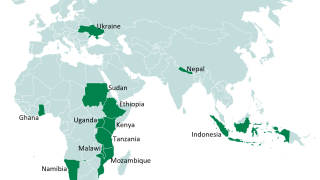Statistics Norway takes part in three types of projects:
Twinning - Institutional cooperation for the development of the NSS
The twinning cooperations are typically long-term and cover a broad range of areas. The twinning partner is usually the NSO in the partner country, but it can also be other members of the NSS in the country. The overall goal of these cooperations is the development of the NSS through institutional cooperation. Projects could last from 8-15 years and cover all types of statistical domains and support functions based on the needs and demands of partners. The cooperation also strives to strengthen adherence to official statistics' core values and fundamental principles.
Sector programmes - Institutional cooperation to develop sector-related statistics
Norad’s sector programmes, like the Agriculture-, Tax-, Oil-, Ocean- and Gender for Development programmes, often include support for statistics. The overall goal of a sector programme will be to strengthen public management within that sector. Support for statistics through sector programmes will often have a strong user orientation as it aims to develop statistics needed to improve the sector's management. This can contribute to more use and a better understanding of statistics in the sector. The support usually is smaller and less flexible in the choice of topics compared to the more traditional twinning cooperation.
Thematic and multilateral cooperation
These focus on a specific thematic area and could be long-term or short-term. These projects typically include a group of partners, including national statistical offices, regional, international, and multilateral organisations. The aim could be to share best practices and allow these to be scaled up to benefit more countries, often including south-south cooperation and regional partners. This type of project also includes contributions to international guidelines, standards, and methods.
Some of our tools
- Detailed project plans to ensure accountability.
- Seconded long-term advisors to ensure coordination, information and follow-up
- Supplementary short-term missions within an institutional setting, and followed up by subject-related and coordination staff
- On-the job training
- Annual meetings with a clear structure and documentation standard
- Resources for back-up support at institutional level, involving both senior and subject-related staff
- Study visits to create networks and learn about other institutional set-ups and structures
